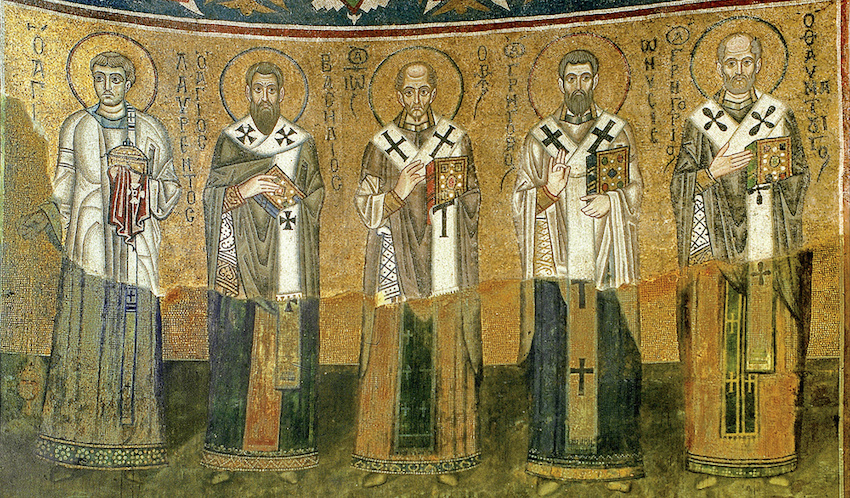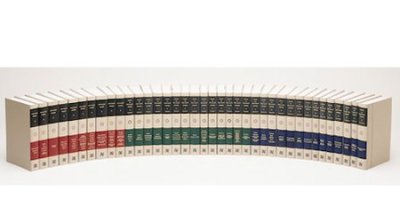Quick Apology: Faked Fathers

A few days ago I posted a Quick Apology in response to a reader’s question on the subject of “Soul Sleep”. In that same email, he described another objection he had heard, which I’d like to address today.
Objection
In the reader’s email, he wrote the following:
I have recently encountered a non-Catholic…who states that the Church Fathers never existed, i.e. all fake
Well…that’s quite the challenge! So, how might one respond when encountering this objection?

Response
Here’s how I would reply if I encountered someone saying something like that…
1. I would begin with a very simple question: why do you say this? These are some very outlandish claims! What has made you conclude that their works are faked? What evidence has led you to this conclusion?
From the Protestant point of view, I can completely understand why you’d want them to be fake. The Fathers mostly likely describe a Christianity significantly removed from the kind you yourself practise, and I can imagine that this raises awkward questions as to why the Early Church didn’t believe what you believe…
However, wanting them to be fake and their actually being fake are two different things. What evidence have you seen to make you think so? Would you agree that if the writings are authentic then the case for Catholicism is much stronger?
2. Why is it that your opinion is not shared by scholars? Respected Catholic, Protestant and atheistic scholars affirm the bulk of the corpus of writings. There are some works where there are questions about authorship and textual integrity, but these are in the significant minority.
Does your denial of established history extend into other areas, or is it restricted to the Early Church Fathers?
3. Please see this image below:

This is a picture of some of the volumes of the works of the Early Church Fathers….thin paper…tiny text… Are you really saying that all these are fake? Do you realize what a colossal task it author these? This then begs other questions:
- If they’re fake, who wrote them?
- When was this massive forgery performed?
- Why were they written? How did they manage to produce their works in so many different languages: Greek, Latin, Coptic, Syriac, Ge’ez, and Armenian…
- How did they manage to distribute these texts throughout the known world?
- How did they manage to get intricate cross-references, quotations and references to contemporary history so expertly interlaced into the text?
4. If the Church Fathers are faked, are you saying that the Councils of Nicaea, Constantinople, Hippo etc. never happened? If so, from where did we get the Nicene Creed? What about the Liturgy of St. James, St. Basil, St. John Chrysostom…where did they come from?
5. If the Early Church Fathers could be faked…why would you trust the Bible? If an evil, conspiring, apostate, whore-of-Babylon Church could fabricate the Fathers, what would stop them doing the same with the Bible?
In fact, how do you think we got the Bible? How has it been preserved through the centuries? It was at Catholic councils led by Catholic Fathers. If they didn’t sort out the New Testament, who did and what is the evidence for this?
I’d also recommend you read The Dog Who never Barked which outlines a general approach for refuting bogus historical claims.
Good questions and reasonable viewpoints. I think their response (or original claim) would be something like, “Pastor Bob said so…”. Not at all deep or reasoned. But it does have the virtue of being what they would want to be true; as you pointed-out at the beginning.
Whenever anyone tells me anything about history, I always make a point of asking for primary sources. I don’t just want one person’s opinion, I want to know what they’ve looked at to reach those opinions.
I’d say this is particularly important when dealing with Mythicists. Such-and-such a god was born from a virgin, you say? On what are you basing this?
Likewise, Pastor Bob might say something, but do you know why he’s saying it? He’s probably read it somewhere. Is it possible that he’s read a book that’s inaccurate? Is that possible? The easy way of finding that out is by simply asking for his sources.